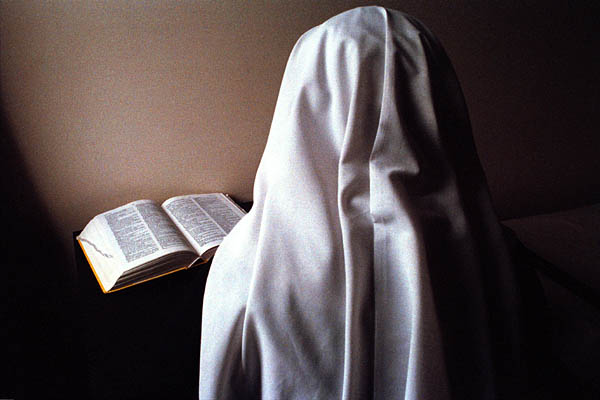 Corpus Christi Quiz
Corpus Christi QuizLast November, the U.S. bishops prepared a document to increase knowledge and reverence for the Eucharist. These questions are taken from it. Source: Nov. 14’s ‘Happy Are Those Who Are Called to His Supper: On Preparing to Receive Christ Worthily in the Eucharist’ available at USCCB.org.
June 10-16, 2007 Issue Posted 6/5/07 at 8:00 AM
1. What do we believe about holy Communion?
2. In what three ways are we united to Christ in Communion?
3. Who may receive holy Communion?
4. Should we ever refrain from receiving holy Communion?
5. How can we prepare to receive holy Communion more worthily?
6. May those who are not Catholic receive holy Communion in the Catholic Church?
7. May Catholics receive holy Communion in other Christian Churches?
Corpus Christi Quiz Answers
At their last November meeting, the U.S. bishops prepared a document to increase knowledge and reverence for the Eucharist. These answers are excerpted from Nov. 14’s “Happy Are Those Who Are Called to His Supper: On Preparing to Receive Christ Worthily in the Eucharist.” Read it in full at USCCB.org.
1. “Holy Communion is a sharing in the Eucharist in which Christ is truly present,” begins the document’s answer.
2. Quoting the Catechism and Pope Benedict, the bishops explain these three ways: participating in the one sacrifice of Christ, communion with each other in the body of Christ, and sharing in Jesus’ resurrection and divinity.
3. “With few exceptions (see answer No. 6), only those who are members of the Catholic Church may receive holy Communion at a Catholic Eucharistic liturgy.”
4. The bishops’ document encourages frequent Communion, but cites three impediments: first, lack of sanctifying grace due to mortal sin (the bishops list 10 common areas of mortal sin); second, lack of adherence to Church teaching; third, giving public scandal.
5. The bishops suggest practices for our day-to-day life, before Mass and at Mass. Day to day: regular prayer and Scripture reading, fulfillment of the duties of your state in life, daily repentance of sin and regular confession. Before Mass: prayerful recollection, one-hour Eucharistic fast, appropriate dress. At Mass: active participation.
6. Citing canon law, the bishops write: “Because of the close communion that still exists between the Catholic Church and certain Churches that are not in full communion with her — such as the Eastern and Oriental Orthodox Churches, the Assyrian Church of the East, and the Polish National Catholic Church — properly disposed members of those Churches, who request it on their own, may be permitted to receive holy Communion. Other Christians may receive holy Communion if they are in danger of death or if they are in a situation of other grave necessity as determined by the diocesan bishop or the bishops’ conference. In such instances, Church authority must see that the following four conditions are present: 1. The person is not able to approach a minister of his or her own community. 2. The individual has asked for the sacrament on his or her own. 3. The individual manifests Catholic faith in the Eucharist. 4. The person is properly disposed.” Members of non-Christian religions are not permitted to receive holy Communion.
7. “It may happen that a Catholic, for a legitimate and serious reason, finds himself or herself unable to attend a Catholic Mass. In such instances, provided that the danger of error or indifferentism is avoided, and that a true necessity or spiritual advantage exists, he or she may receive the Eucharist from a non-Catholic minister in whose Church the sacrament is valid or from one who is validly ordained according to Catholic teaching. In practice, this means the Eastern and Orthodox Churches, the Assyrian Church of the East, and the Polish National Catholic Church.” Catholics should be mindful of those Churches’ restrictions, however

No comments:
Post a Comment